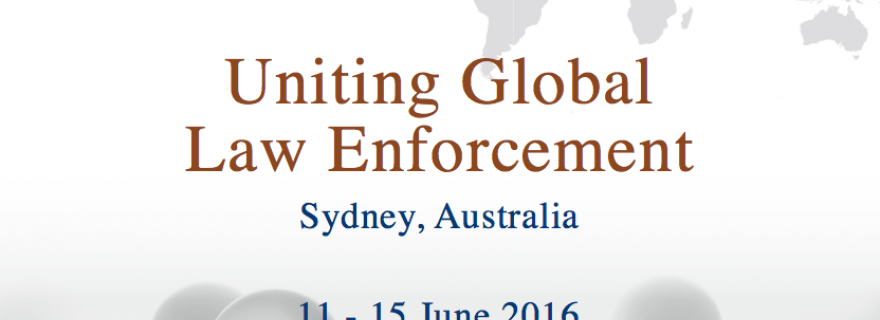Pearls in Policing: preparing for the future
Are the police still the thin blue line, focused on containing immediate threats and maintaining public order in their jurisdictions? Or can they move beyond that to bigger roles, coordinating global law enforcement and responding to global threats?
Sydney hosted the tenth annual Pearls in Policing conference from 11 to 15 June 2016. Pearls is an international think-tank meeting where top police leaders from around the world share ideas, experiences and knowledge in a small-scale, collegial environment. This year’s conference theme was ‘Uniting Global Law Enforcement’. Hosted by the Australian Federal Police (AFP) and the New South Wales Police Force (NSWPF), in cooperation with the Pearls curatorium, invited participants to engage in a discussion on the imperatives for and obstacles to the creation of a closer and more integrated international policing environment.
Every Pearls participant was invited to nominate what they regarded the greatest obstacles to uniting global law enforcement, as well as the issues and countries that most worries their organisations. The answers showed that most police organisations still have a predominantly local and neighbourhood focus, nominated bordering or nearby countries as their biggest or most worrisome problem. Asked about the most important crimes they have to deal with, there seems to be still a heavy focus on the traditional challenges, such as drug crime, money laundering, fraud and financial crime, terrorism and migration. Hence, the question was raised; are the police forces too narrow in their focus? Do they see the need for strategies and action in states beyond our immediate vicinity? Do they pay enough attention to the growing crimes of the future, such as cyber and environmental crime?
Police organisations are still struggling to articulate the law enforcement narrative for today and the future. The question they raised themselves was: “are we still the thin blue line, focused on containing immediate threats and maintaining public order in our jurisdictions. Or are we able to move beyond that to bigger roles, coordinating global law enforcement and responding to global threats like an orchestra director? Or will we be content to be simply part of the parade?” Clearly, those participating in the Pearls meeting were not satisfied with the latter. Building on the 2015 report “Innovation through partnerships”, there was general agreement for the need to work hard on exploring avenues to prepare their police organisations for the future – one that requires closer international cooperation and interaction with a whole variety of actors and stakeholders, both at home and abroad. Only this way police will be able to deal with the crimes and security challenges of the future.
For the executive summary of the Sydney 11-15 June 2016 meeting by the Pearls curatorium, see http://www.pearlsinpolicing.com/


